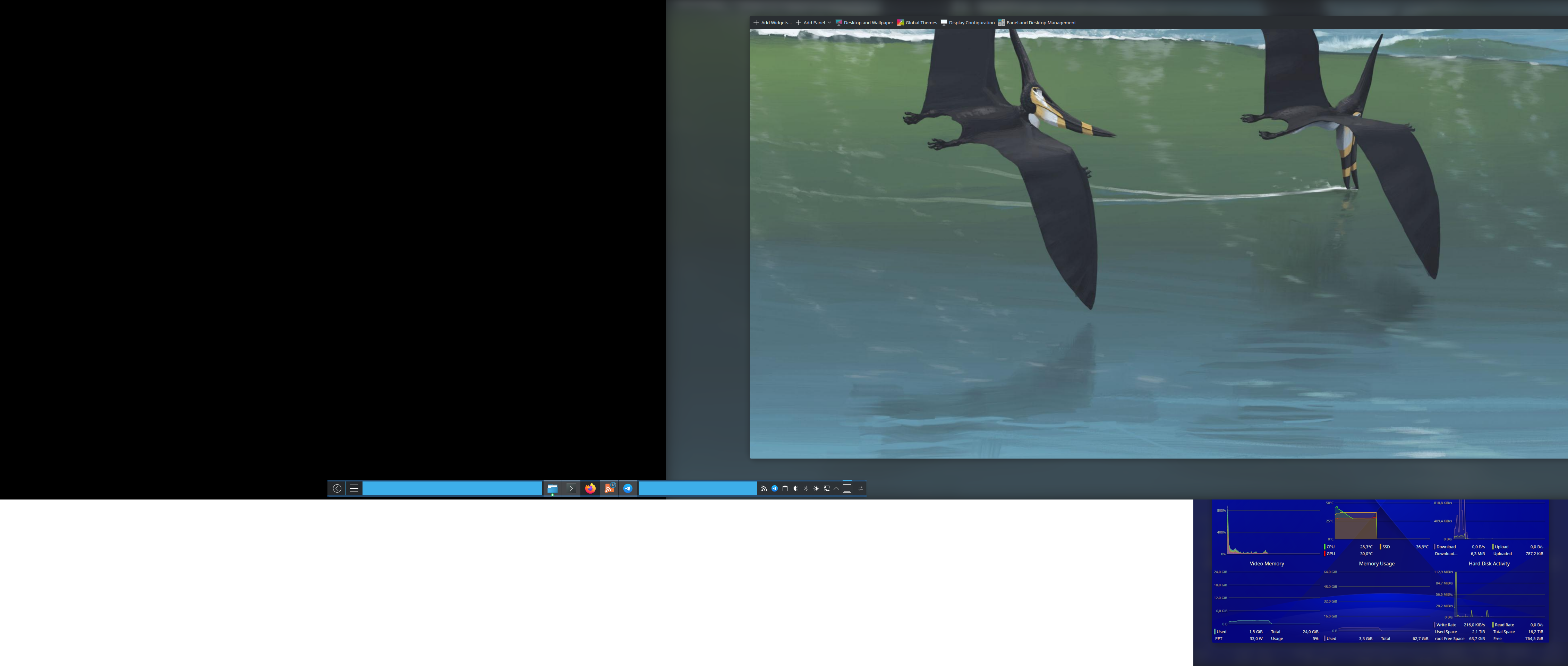humor is the subversion of expectations. what you're doing is a well-known improv technique known as "no."
lime
i've seen something like this before, where the kernel holds the file handle open for the process so that it thinks the file is still there. i think it's related to how the program closes the file but i don't remember the details. restarting qbittorent will most likely fix it.
tariffs
my dude, just seeing the text is too much effort.
me, watching a friend play a game (that i play) for the first time
your reaction makes me more confident that this may turn into something interesting :)
i take it then that files must have some ownership information associated with them, to distinguish the author from a relay node? or is that just a private key.
i'm interested in the dynamic linking, what mechanism is used to stop situations like left-pad or the pypi incident where a file is removed replaced with a malicious alternative?
i'm completely unmotivated at work and my tasks are time-sensitive. also my employer is collapsing around me so i'm trying to see if anyone else needs people.
also i'm halfway through a move, and there's no internet in the new place until december so i'm sitting here in a room without curtains and full of boxes, the only thing still unpacked being my remote work setup.
i mean, that is the difference between interpreted and compiled.
if the container doesn't work though, that means it is broken and should be fixed. the point of them is literally to be plug-n-play. that would be like distributing a go binary with a segfault in main.
if I'm reading this right, it's a bit like ipfs+dht. is this a content-addressable system?
anyway, you should probably have demos of
- large files (like a Linux disk image), to demonstrate consistency in transfer.
- Video stream, to demonstrate performance and low latency.
- multiple files shared with many peers at once, to demonstrate scalability
- sharing with low bandwidth and high latency, to demonstrate possible mobile use cases.
thoughts:
- the logo is very close to wireguard's.
- if the data is stored on peers, that means there must always be people with free storage online for it to work? how much storage is needed? is that data in plaintext? could a bad actor push illegal content to peers without them knowing?
also, please convert the whitepaper to a format that is actually readable. rtf? really?
that's posturing if anything. if you're an experienced developer it takes fully 10 minutes with either system. and if you're not interested in modifying it, just use a container image.
the only case where i would agree with you is when i have to modify LD_LIBRARY_PATH to get things to run...

i don't know if it counts as proper cyberpunk but it floated to tie top of my mind when i read the post.
in fall 2014 i was visiting a friend in stockholm, and through some weird mix of circumstances we found ourselves in the apartment of a friend of a friend of theirs, at three in the afternoon, like eight of us in a three-person sofa bed and watching Algorithm. the guy who lived there really wanted to show it to us since he thought it was so cool, gritty and realistic. i remember that he had a photograph on his wall of him shaking hands with the king. i think he worked for google. anyway...
it is one of the worst movies i've seen. and it's not funny bad. it's an angsty drama about a computer hacker hiding from the authorities, so it's mostly about how good he is with computers. all in this muted gray-green color, it's mostly shot day-for-night, and it's just soooo boring.
the only detail i vividly remember is a scene where the protagonist swaps to a new burner phone. he does this by taking the SIM card out, throwing the old phone in a bin, and putting the SIM into the new phone. i still think about that scene.